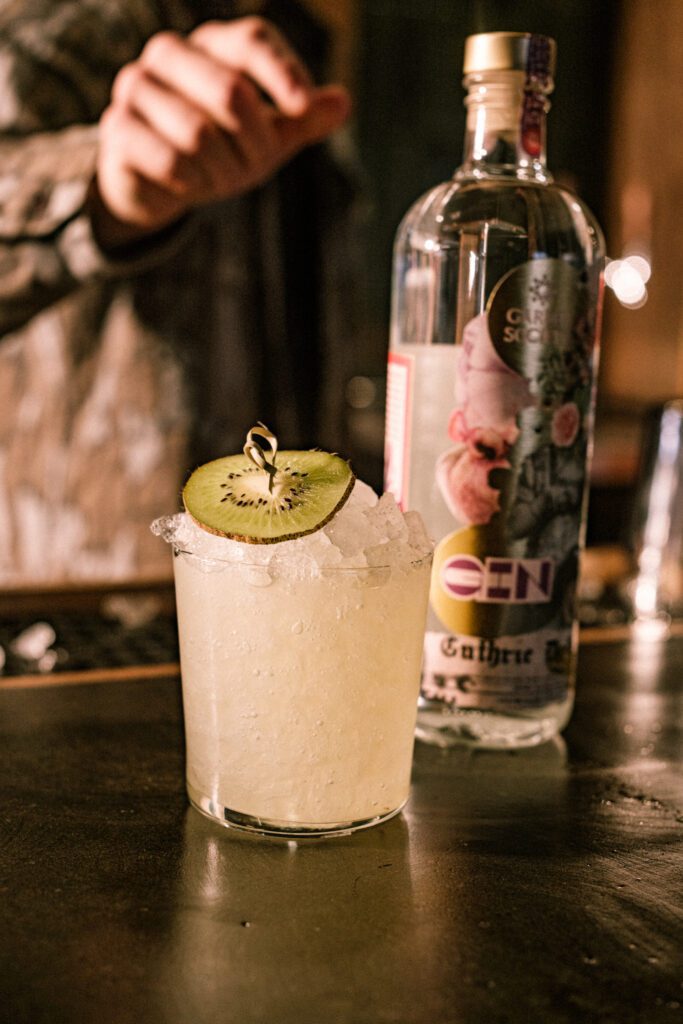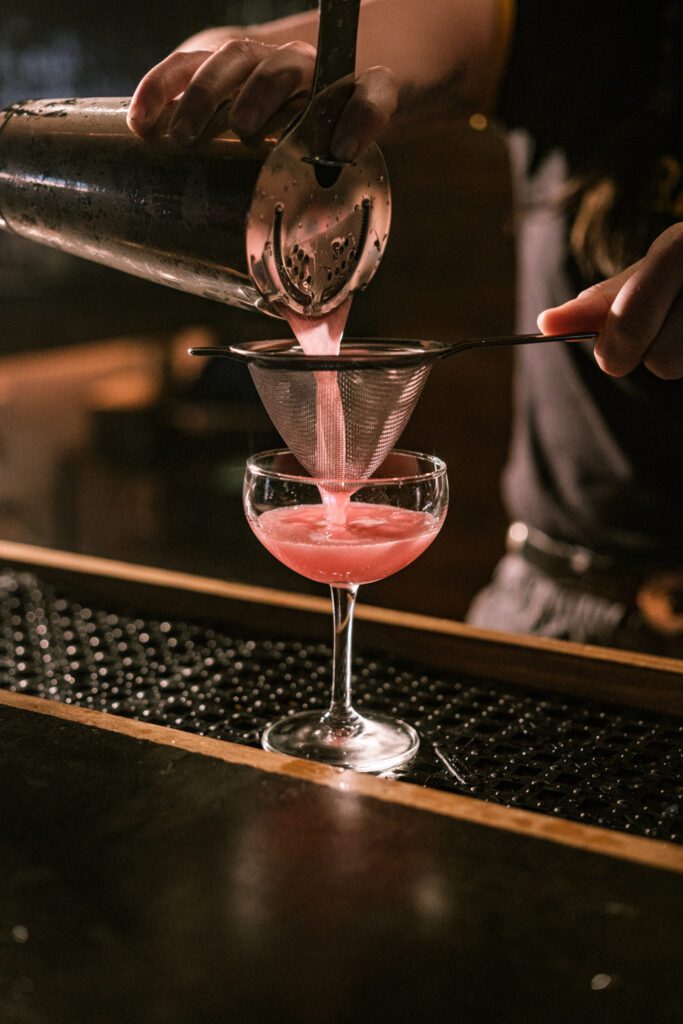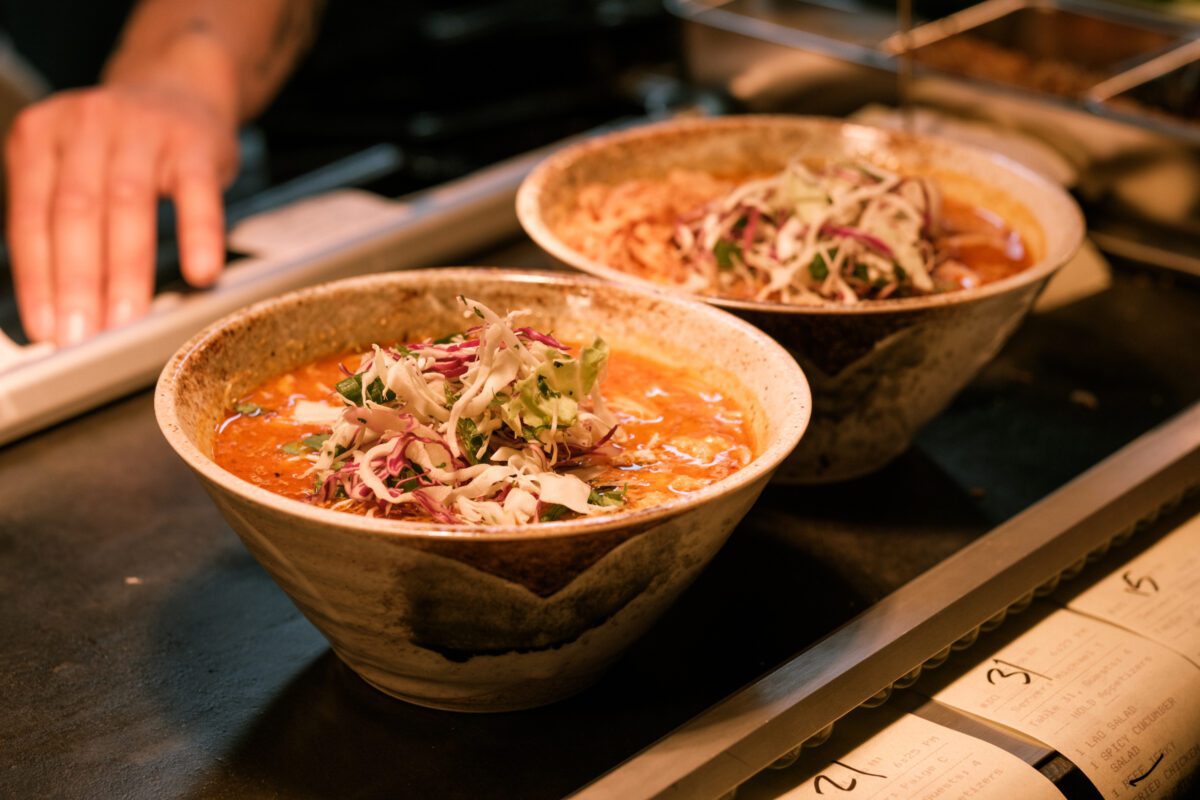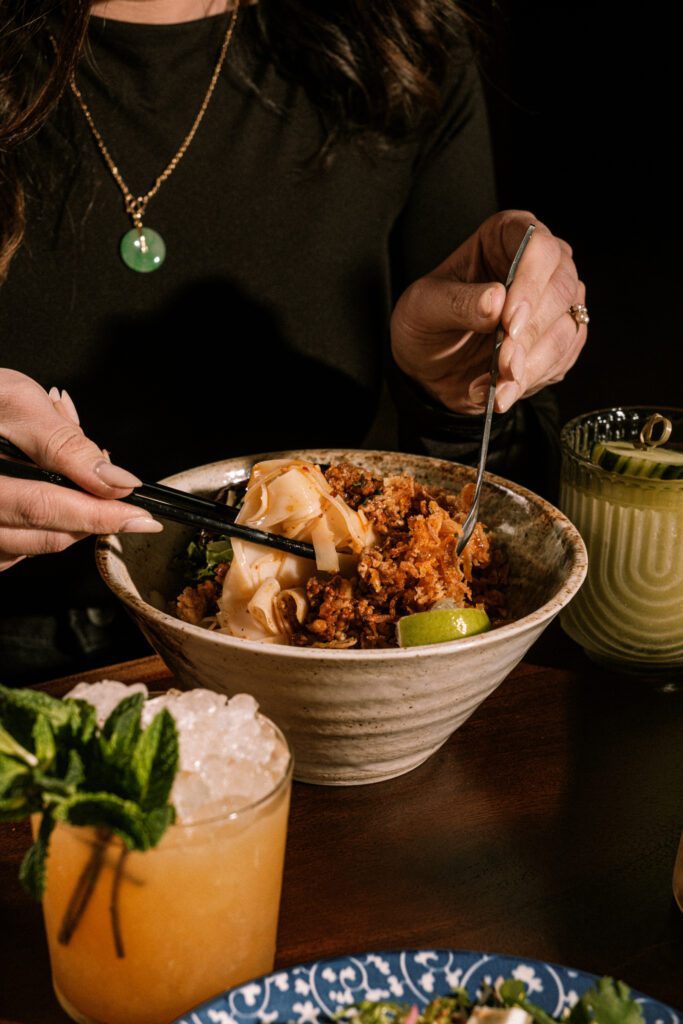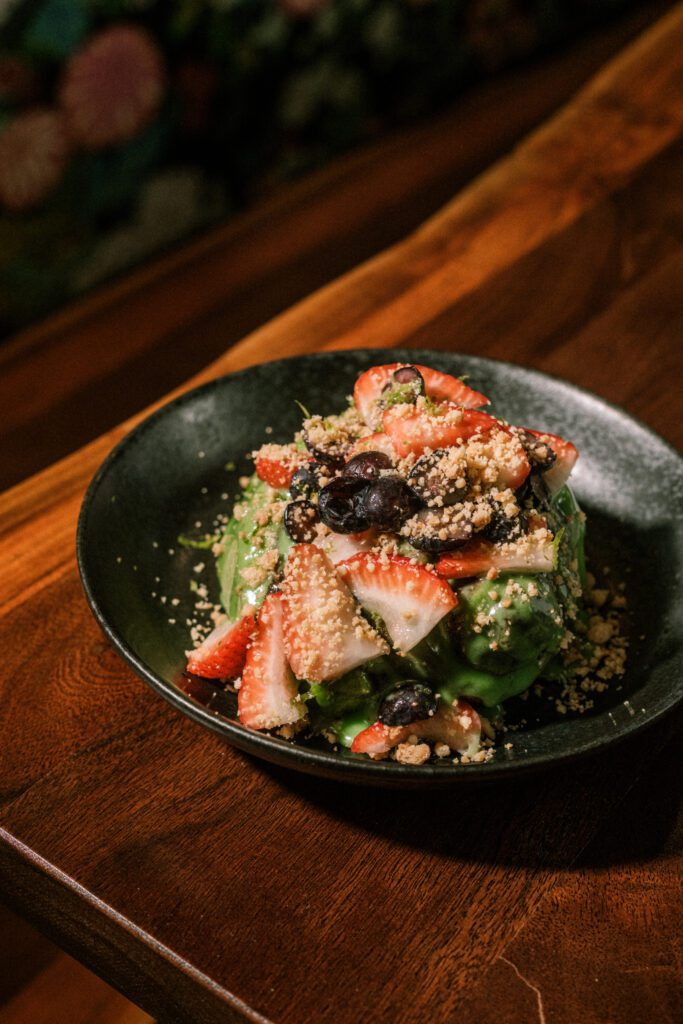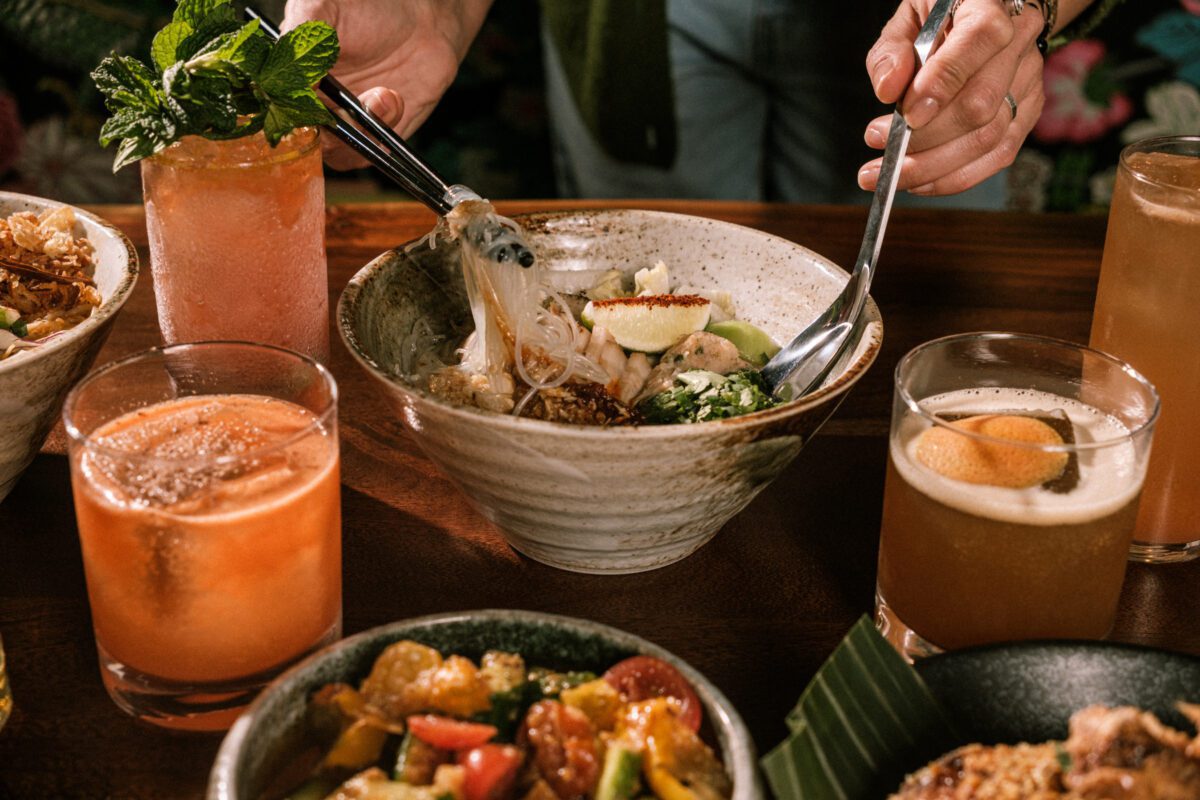Every morning in Oklahoma City, a jet leaps for the sky, headed for Chicago. Jeff Chanchaleune knows that flight well. For two years running, he flew to Chicago to compete as a finalist for the highly coveted James Beard Award. And then, a year later, he was invited to cook for the guests after the ceremony.
This is a big honor, but no surprise. Chanchaleune, by now, is nationally famous, perhaps better known and lauded outside Oklahoma than in it. Restaurants where chefs honor the cuisine of their ancestors are having a very well-deserved moment, and Chanchaleune has turned the spotlight on a rich, complex cuisine of a bright and verdant Southeast Asian land: Laos.
Chanchaleune’s grandfather worked for the King of Laos, and after the Communist takeover, he moved his family to America, settling in Oklahoma City. Since his father was an accomplished chef, Jeff worked at the family restaurant peeling potatoes and bussing tables. All he wanted was to escape, so he went to OU and later got a job with an ad agency.
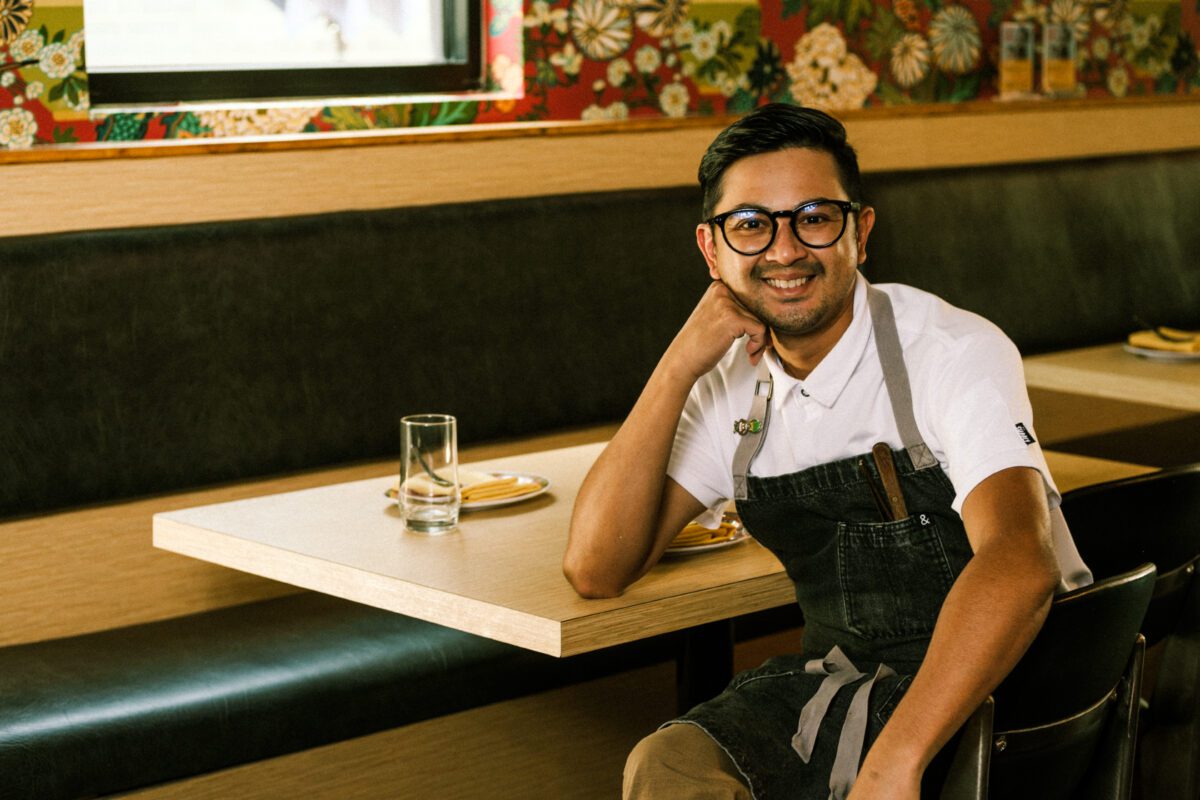
After two and a half years, he recalls, “I realized I missed cooking, and I’m good at it, so I quit a job with a good salary.”
He took his first flight to Chicago, where he worked in restaurants, looking for something that you couldn’t find in Oklahoma. He found it in Japanese ramen.
Fast-forward a bit, and you’ll find Chanchaleune running a highly regarded ramen restaurant in Oklahoma City, Goro, already beginning to gain national recognition. Then COVID-19 struck.
“This was the turning point of my career,” he recalls. “I realized it was time to go back to my roots.”
He’d grown up eating Laotian food, but he’d never prepared it himself. So, he sent out an SOS to his mother and grandmother.
“I watched them, made notes, added some modern-day techniques to make things better,” he says. “My grandmother built my palate, teaching me how to balance a dish.”
The first year after Ma Der Lao, his new restaurant, opened, business was so slow he thought of closing. Then the New York Times put Ma Der on its list of best restaurants in the United States, and a flood of curious diners came. About a year later, a building right next door became vacant.
“I took it,” Chanchaleune recalls, “and opened Bar Sen.” This restaurant, Jeff says, is “a direct extension of Ma Der Lao, of its food, of its mission, which is to invite the world into our kitchen. We are continuing to educate the world about our food and culture so it doesn’t get lost.”
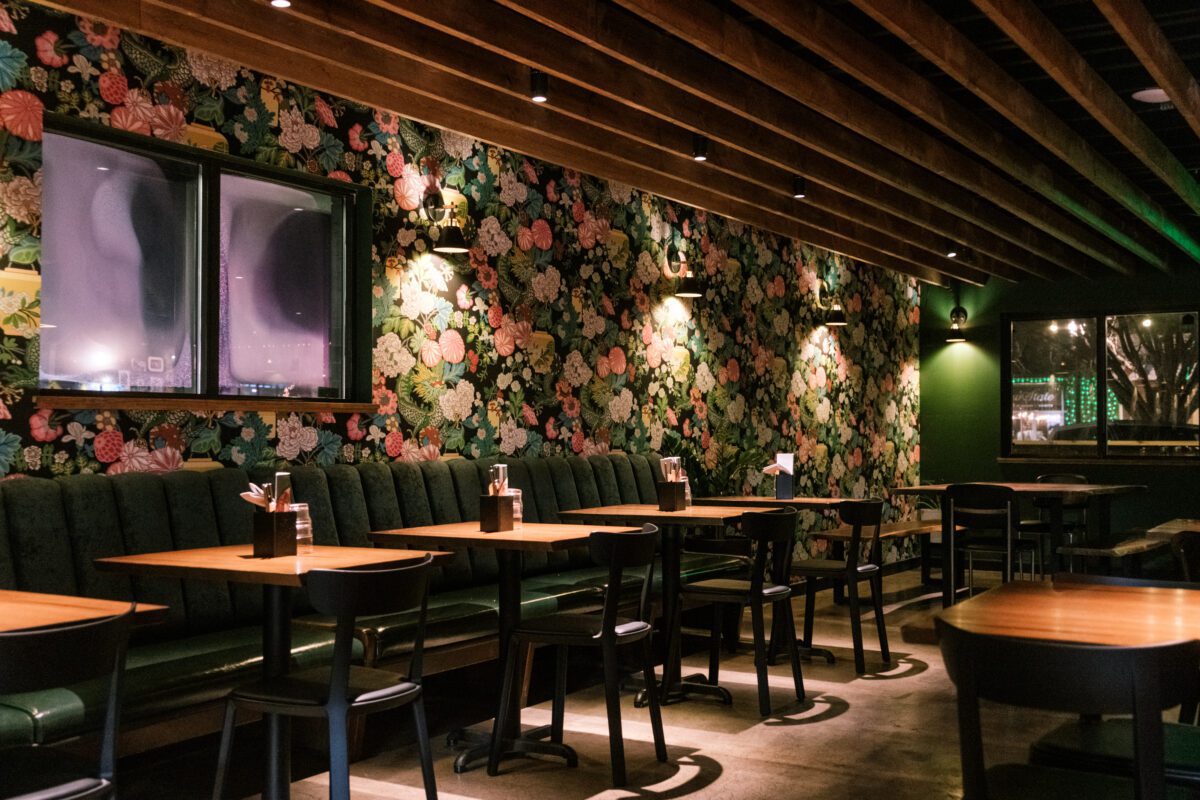
Sen means noodles, and Bar Sen was at first designed to focus on two of Jeff’s loves: soup and noodles. Jeff’s first love as a child, his mom’s chicken soup, takes center stage. It takes eight hours to make the stock. The dough for the noodles is hand-rolled, then cut with a knife. Add Lao fish sauce, quail eggs, herbs and a lot of love, and you have Khao Piek Sen.
In recent months, Bar Sen has evolved beyond a noodle bar; it’s become more personal. Some dishes bring back Jeff’s childhood memories of Oklahoma. Others are glorious creations he’s made on his own with no reference to traditional Lao cuisine.
There’s fried chicken – an homage to childhood days when, as a special treat, the family had a picnic and feasted on Church’s Chicken. Chanchaleune, however, adds coconut milk and jaew bong to the mix, as well as spicy honey. He’s also invented a complex, surprising take on a cucumber salad to go with it. There’s also a scallop dish that bursts with unexpected and memorable flavor – he’d been working on that dish for two years.
So why, when business is already booming, does Chanchaleune create these new dishes? Because that’s what great chefs do.
“I’m cooking plates that are me,” says Chanchaleune, “and I get to have a lot of fun.”
Featured image photo credit: Khao Piek Sen, Jeff Chanchaleune’s play on chicken noodle soup, includes hand-rolled noodles, Lao fish sauce, quail eggs and herbs. All photos by Quit Nguyen
